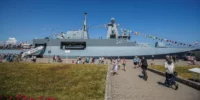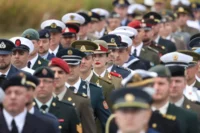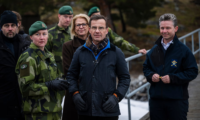
NATO Cannot Survive Without America
Last month, NATO, the world’s most successful military alliance, celebrated its 75th anniversary. Some fear that it may have been its last anniversary with the United States playing a leading role. Former U.S. President Donald Trump still views the alliance as obsolete. If reelected, he says he would encourage Russian leaders to do “whatever the hell they want” to member states that do not pay what he considers to be enough for defense. A second Trump presidency could have dire implications for European security.
Trump’s defenders argue that he is bluffing to pressure Europe into spending more on defense. But former U.S.… Seguir leyendo »














